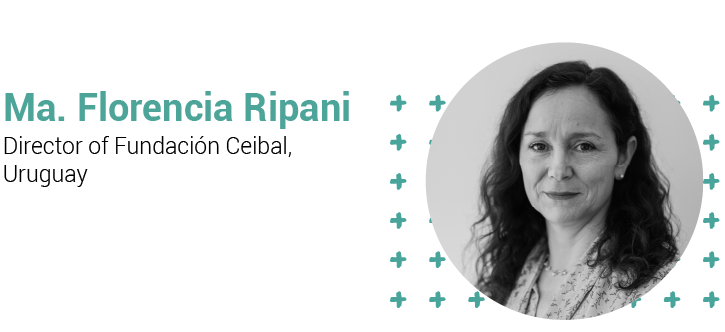
The coronavirus caused one of the greatest social and educational disruptions in the last 100 years, and a definitive solution has yet to be found. Uruguay was the first country in Latin America to return to in-person classes, after implementing a national contingency plan that gained international recognition.
The reconfiguration of the education system to adapt to a reality in which physical proximity between people became a threat to life demanded the rapid and coordinated design of innovations, in which Plan Ceibal played a central role. It not only showed that it had one of the most robust infrastructures and availability of digital content in the region, but also showed its capacity for innovation and resilience for overcoming the challenges of the new context.
The Plan went from being a complement to in-person education to become the main learning environment for children and young people in Uruguay, as well as providing communication between teachers, students and their families.
In coordination with the National Public Education Administration (Administración Nacional de Educación Pública, ANEP), the Plan Ceibal contingency plan Ceibal en casa (Ceibal at home) succeeded in sustaining and broadening the availability of educational resources. It developed emerging audiovisual formats, with multiplatform distribution strategies, via social media and television, through which it managed to extend the availability of content beyond digital systems. Its aim of reaching all the homes in the country equitably was also seen in the generation of agreements for the free provision of mobile data services to access educational platforms. It also broadened the functionality of its learning platform with a new videoconference service, and generated proposals adapted for teachers, students and their families, including socio-emotional support. Permanent monitoring and the use of data to adapt to the change of scenario were fundamental in generating flexible, efficient management and for making informed decisions.
This has been perhaps one of the most important challenges that Plan Ceibal has faced since its creation in 2007. After 13 years of experience, its working teams, its infrastructure of systems and content, along with the networks of teachers, students and education centres took on a huge commitment: the innovation of the education system to address an unpredictable reality. The disruptive scenario of the pandemic generated enormous challenges but also opportunities to resignify a digital plan that achieved systematized growth over time and which today has been strengthened with a high level of appropriation and valuation among the education community, in a context marked by the expansion and prevalence of the socio-technological ecosystem.
In this publication, Fundación Ceibal presents different perspectives and analyses of the transformation of the Plan Ceibal in a new scenario, one that remains dynamic, which is presented as an opportunity for innovation and strengthening in the integration of the Uruguayan education system.
